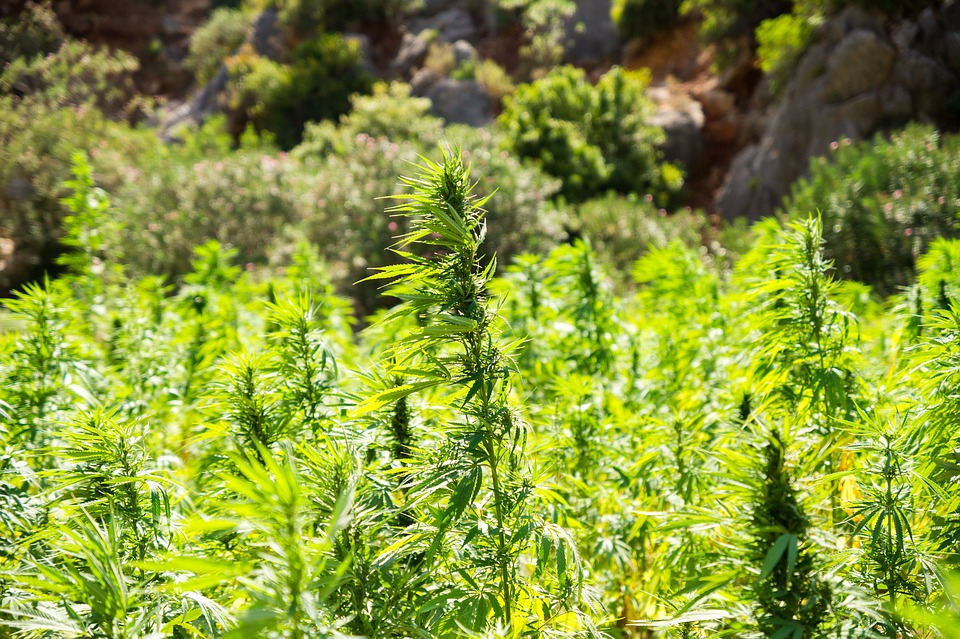The world continues to use plastic when hemp is, by all means, a better alternative. In this post, we will have a look at how hemp plastic could save our planet from further pollution.
Normally, it takes between 500-1,000 years for plastic to degrade. There is so much plastic thrown away every day that it could circle the earth four times.
It is reported that the United States alone throws away 35 billion plastic water bottles each year. Unfortunately, this plastic ends up in the land and the ocean, disturbing our natural ecosystems. Even worse, plastic pollution ends up in our bodies to create tumors.
In a survey of 2517 urine samples, The National Institute of Environmental Health Sciences reported that 93 percent of Americans over the age of six were tested positive for BPA which is a chemical in plastic linked to cancer, impaired immunity, and more.
Essentially, plastic is made up of cellulose and cellulose is obtained from petroleum. While plastic pollution causes environmental and health hazards, hemp could help to save our planet against plastic. Hemp also happens to be an excellent source of cellulose but a sustainable one.
Here are 4 ways of how hemp plastic could change our planet.
1. Hemp plastic is biodegradable

The toxicity of plastic is because of its long shelf life. Your water bottle may only be used for some time but will take years to decompose. This applies to all your other bags, boxes, kitchen wares, among so many others.
In the meantime, if we consider hemp plastic which is made from biodegradable polymers, it can be completely biodegradable. The plastic that is made from hemp is different as it doesn’t contribute to permanent pollution.
In comparison to conventional plastics hemp plastic takes around 3-6 months to decompose and hemp plastic can be recycled indefinitely. Unlike recycling petroleum-based plastic, hemp plastic does not leak harmful substances like BPA into the environment. Plastic made from hemp is completely free from this type of toxin.
2. Hemp plastic is non-toxic
On one side, plastic is toxic to our health because it contains BPA which is an endocrine disruptor.
BPA interferes with the hormone system in our body and once inside the body, the endocrine disruptor acts like the hormone estrogen. Why is this something to worry?
Hormonal imbalance in the body contributes to the development of tumors. Endocrine disruptors are known to be linked to birth defects, cancer, and more.
Furthermore, these endocrine disruptors can also contaminate the soil and groundwater to further damage our natural environment and health.
On the other side, hemp plastic is non-toxic as it doesn’t contain harmful endocrine disruptors similar to petroleum-based plastics.
Unlike petroleum-based plastic, hemp plastic does not leak toxins into the air during production.
3. Hemp plastic could help save endangered wildlife
The Commonwealth Scientific and Industrial Research Organization and Imperial College of London carried a study and reported that 60% of seabirds had plastic in their gut. More alarmingly, they expect that number to rise to 99% by 2050!
Unfortunately, this plastic ends up in wildlife when it is exposed to sunlight as it breaks down into smaller pieces. These pieces of plastic are ingested by marine life. And, as plastic disintegrates in nature, it further moves down the food chain. That delicious fish or calamari you are eating might well contain plastic. Ingesting plastic may lead to detrimental health effects that we are likely still unaware of.
If we consider hemp plastic, on the other hand, it is biodegradable and non-toxic. We could create sustainable initiatives to recycle hemp plastic safely instead of filling up our seas with deadly petrochemical plastics.
4. Hemp plastic decreases environmental pollutants
Climate Central (an independent organization of great scientists and journalists researching and reporting the facts about climate change and its impact) points out that there is more carbon dioxide in the atmosphere today than at any point of time during the last 800,000 years.
Conventional plastics are made from fossil fuels like petroleum, which when burnt, contributes to rising CO2 emissions. The rising carbon dioxide concentrations are responsible for global warming or the greenhouse effect, which is already bringing havoc to the world with natural calamities like flash floods, more frequent tropical cyclones with ever-increasing strength, to mention just a few.

Hemp plants can reduce the greenhouse effect by absorbing carbon dioxide from the atmosphere and converting it into oxygen. These same hemp plants can be used to produce hemp plastic which generates zero toxic byproducts. From seed to sale, hemp has a sustainable process. By all means, hemp plastic is better than petrochemical plastics.
Why are we not cultivating hemp to make hemp byproducts?

Because in many countries, lawmakers have confused the non-cannabis industrial hemp that can be grown for its myriad uses in industrial fibers and foods with its cannabis cousin! According to the National Conference of State Legislatures, “hemp and marijuana products both are species of the cannabis plant, hemp is typically distinguished by its lower concentration of tetrahydrocannabinol (THC).”
All in all
There exist no other natural resource with the same capabilities of hemp. From start to finish, hemp is a completely renewable resource. Even though hemp isn’t the only answer to our environmental and health concerns, it’s a start.
Remember to share this article if you agree that hemp plastic could save our planet…


1 thought on “How Hemp Plastic Can Save the World”